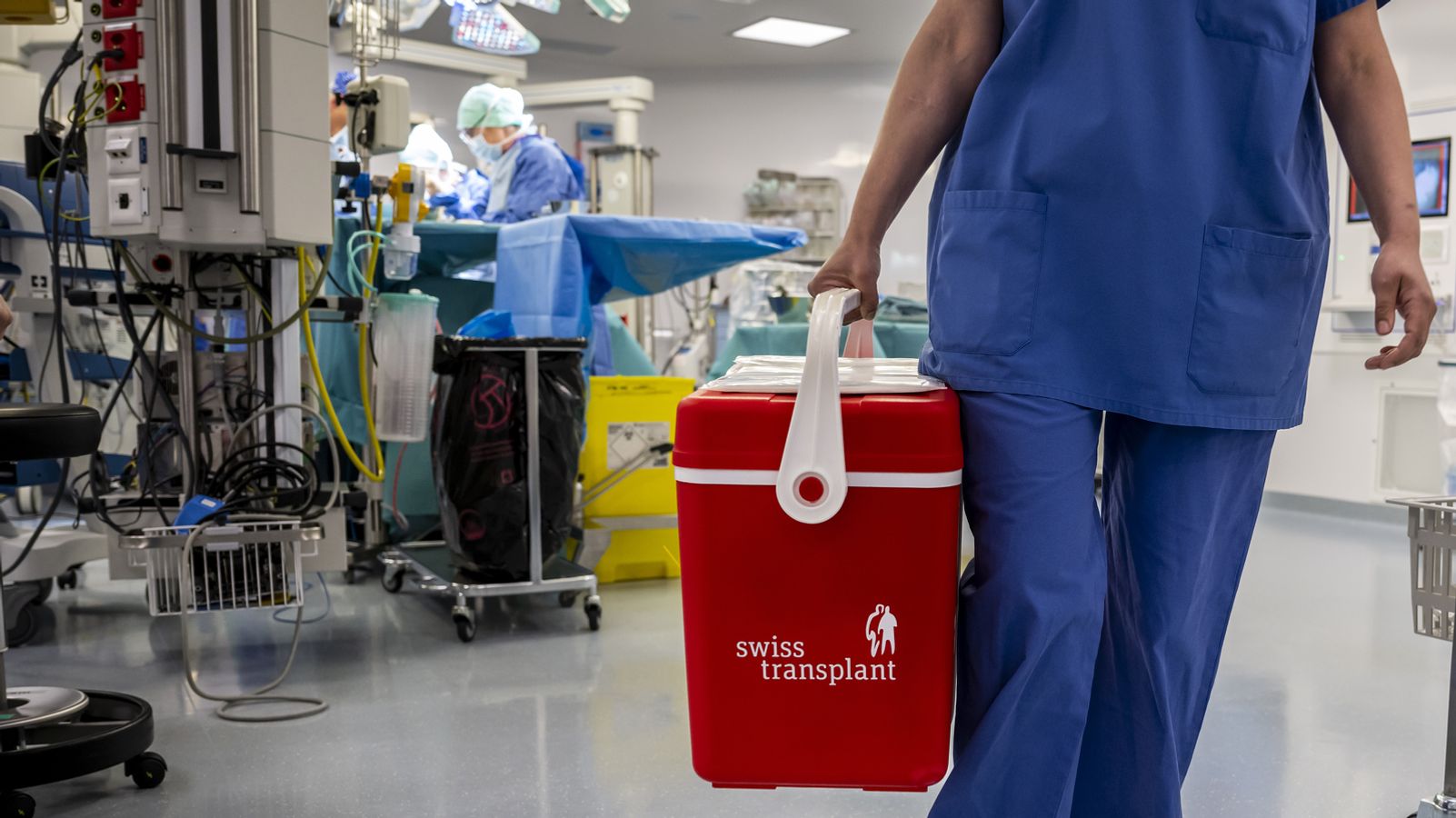For the first time, doctors in Switzerland managed to keep a human liver alive artificially for three days and then successfully transplanted it – a record! Because so far the limit is 12 hours. Specifically, doctors had treated an originally damaged donor liver for three days outside of the body in a machine. They then reinserted the recovered organ into a patient with cancer.
Organ supply outside of the human body
They did it with a self-developed Perfusionsmaschine. Perfusion is the (mechanical) supply of blood to organs. Max Hefti from the Swiss Federal Institute of Technology Zurich (ETH) explains how the components of this machine were combined for the first time:
“We map the main functions of important organs in the machine. For example, we map the heart function through a blood pump. Then there’s an oxygenator (a medical device that oxygenates blood and removes carbon dioxide from blood, Anm. Red.), which takes over the function of the lungs. Dialysis takes over the function of kidneys. And then there are many other functions that, when combined, try to imitate the body as well as possible.” (Max Hefti, ETH Zurich)
This has great advantages for the transplantation: there is no longer such a rush, the doctors do not have to work overtired. And the organ can be examined more closely. Many organs are not transplanted at all because one is not sure whether they will then function in the body or not, explains Hefti.
Lack of donor organs could be compensated
A machine like this allows the surgeon to check organ quality in detail and make better transplant decisions, Hefti says. For example, antibiotic or hormonal therapies or the optimization of liver metabolism are possible. And this method has another advantage:
“Our therapy shows that treating livers in the perfusion machine makes it possible to alleviate the lack of functioning donor organs and save lives,” explains Prof. Pierre-Alain Clavien, Director of the Clinic for Visceral and Transplantation Surgery at the University Hospital Zurich ( USZ) in the science journal Nature Biotechnology.
Only one patient received a liver using the new method. Nevertheless, the medical team speaks of a success: one year after the operation, the patient is still doing well. A clinical study is now to follow.
“Here is Bavaria”: The BR24 newsletter informs you about the most important things of the day at a glance, Monday to Friday after work – compact and directly in your private mailbox. Register here!
–

